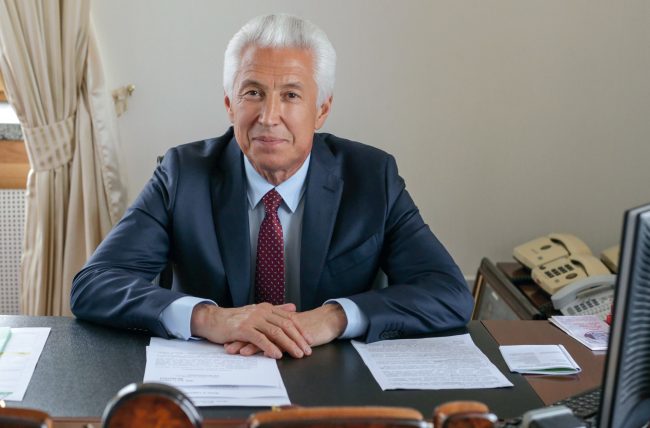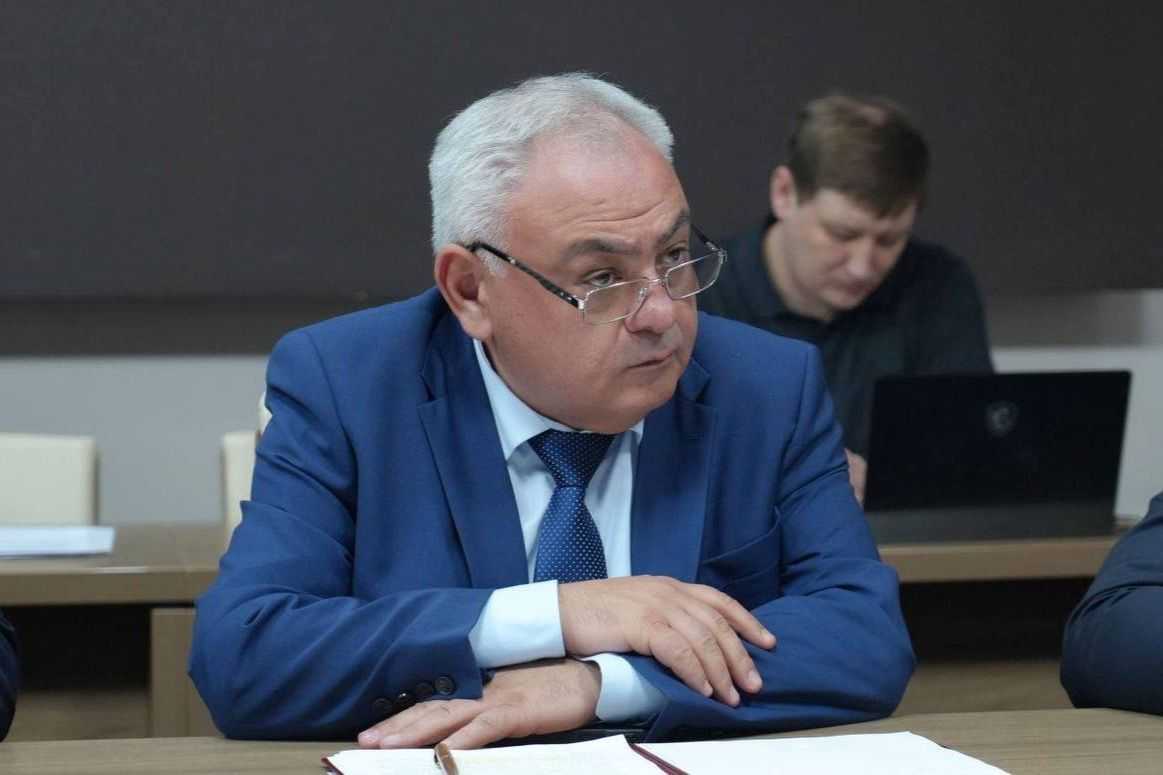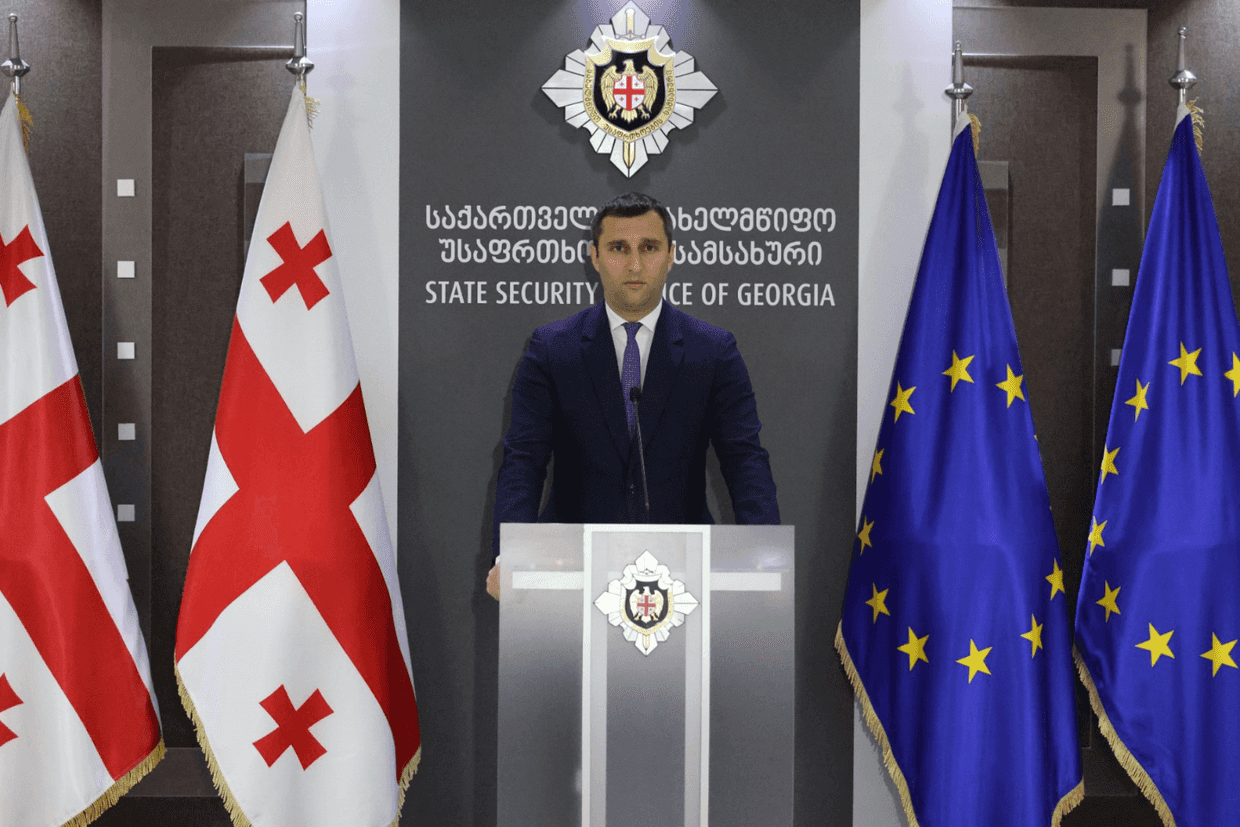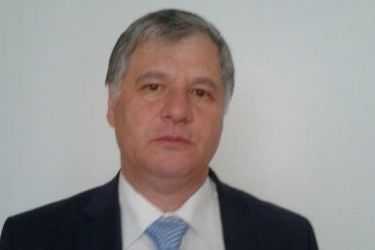

![]() Are the ongoing arrests and prosecution of high-ranking officials in Daghestan really about fighting corruption, or simply posturing?
Are the ongoing arrests and prosecution of high-ranking officials in Daghestan really about fighting corruption, or simply posturing?
On 21 January, Musa Musayev, the Mayor of Makhachkala, was arrested in Daghestan on suspicion of abuse of power. He was charged with the illegal transfer of a government-owned plot of land worth ₽81 million ($1.3 million) to Joint Stock Construction and Industrial Complex. According to the investigation, the mayor received ₽1.1 million ($18,000) for this transaction. The arrest marked the beginning of a number of high-profile arrests and criminal cases against high-ranking government officials in Daghestan.
The government fell
In the evening of 5 February, the acting head of the republic, Vladimir Vasilyev, dismissed the government of the region. On the same night, after searches were conducted, interim prime minister Abdusalamad Khamidov, his deputies Shamil Isayev and Rayudin Yusufov, and former minister of education and sciences Shakhabas Shakhov, were all detained. They were charged with the theft of ₽95.8 million ($1.6 million) allocated from the republic’s budget for social programmes.
The investigation was carried out in a demonstratively harsh way. Security forces released a video of the handcuffed detainees, with bags over their heads, being led to a plane to be sent to Moscow. On 2 March, the FSB detained the head of the Derbent District, Magomed Dzhelilov, on charges of land fraud (he was placed under house arrest), and the deputy head of the customs service of Daghestan, Araz Galimov, who became a figurant in a case for smuggling, extortion, and drug trafficking across the Azerbaijani border.
‘Not just posturing’
It looks like the arrests are not over yet — the security services are investigating the administrations of several other cities and districts of Daghestan. Vasilyev has said that in his opinion, the expansion of the investigation is possible ‘both in terms of time, individual cases, and participants’. In Makhachkala, the Prosecutor General’s Office continues to work (in Daghestan it’s been dubbed the ‘38 prosecutors’). Each member of the group has its own direction and department, RBK reports, citing a source in the Ministry of Internal Affairs in Moscow.
The same source also said that evidence on high-ranking Daghestani officials involved in corruption had been gathered for two years, but the open purge of clans in Daghestan began when Vladimir Vasilyev assumed his post as interim head of the Republic.
‘The time has come’, Vasilyev said in a TV interview. ‘My predecessors were solving very important problems. Terrorism and radicalism were stopped. And this created the conditions for fighting corruption… This is not just posturing. In my opinion — it is systematic work’.
According to the interim head of Daghestan, the scale of the shadow economy in the republic reaches 40–60% of the economy. In some areas, such as municipal transport and urban policy, the region lags behind other Russian regions by fifteen years, he said. ‘It’s time to reach the level of Russia. We must create here the same legal space as in the rest of Russia’, he said.
A well-oiled mechanism
The scale of corruption in Daghestan is indeed outrageous, and is well known even outside the republic. Without a bribe, it is impossible to get a job not only for a leadership position, but even as an ordinary teacher in school or a nurse in a polyclinic. Of course, after getting a job, one then has to recoup the costs incurred to get it at the expense of the rest of the population. As a result, no single service is available for free. Getting a place for a child in a kindergarten, going to the hospital, registering as disabled — everything costs money.
In a situation such as this, any social programmes or commercial projects are subject to a huge ‘corruption tax’, sometimes exceeding the cost of the project itself. And then the money allocated, say, for the construction of a new rural school, is stolen not in part, but completely, while children continue studying in decrepit buildings.
Each clan, regardless of its influence, reaching for power on any level, seeks to bring even more of its own people into the police, the prosecutor’s office, and the courts. Thus, solving any problem within the limits of the law is impossible: law enforcement agencies and courts are also tied up in this system, and the turnover here is many times greater, with the price tags on ‘services’ an order of magnitude higher.
Diagnosis: social sclerosis
Any attempt to fight corruption leads only to one dominant clan replacing another, which continues to act in the same way: to work for its own enrichment.
‘American economist Mancur Olson came up with such a notion as social sclerosis. It is about groups in power whose income and rents do not decrease, and sometimes even increase with the deterioration of the economic condition of the whole country. It can be a party, a trade union, a military junta, and at the local level it can be clans. In Daghestan, clans have been such a social sclerosis for 20 years. They created a system in which they received their income regardless of the welfare of the republic. So Moscow started having problems with them’, Daghestani lawyer and political scientist Rasul Kadiyev told Dosh.
In his view, the reason Moscow launched another anti-corruption campaign and introduced ‘external management’ represented by Vasilyev, premier Anton Zdunov, and prosecutor Denis Popov, is primarily an economic one.
‘Budgetary money is circulating, and here some losses are inevitable. But in Daghestan, the level of these losses was high, while the political profit was low. The region remained very problematic. These transaction costs became particularly unacceptable when crisis hit the country. So it’s not a fight with the Magomedov clan or anyone else, it’s a struggle to reduce the expenses of the state in conditions of a shrinking budget’, Kadiyev said.
Personnel and taxes
Whether Moscow’s attempt to restore order in Daghestan will be successful is still unclear. Ramazan Radzhabov, editor-in-chief of the Molodyozh Dagestana newspaper, says that much depends on the staff choices of the new head of the republic.
‘Vasilyev’s first appointments are encouraging. The government appointed people who had no connections with any financial and political groupings in the republic. Premier Anton Zdunov is a completely new person in the republic. For corruption at this level, top management should have established ties, people in key positions. There are none (at least for now). The first vice-premiers, Ramazan Aliyev and Anatoly Karibov, can hardly be called people who are related to any clans and corruption schemes. The same goes for the vice-premiers Yekaterina Tolstikova and Ummapazil Omarova. Minister of Economy Osman Khasbulatov is also a new person and, in my opinion, competent in his field. The prosecutor is from another region, the new chairman of the Supreme Court is also not going to be from Daghestan, and the republic’s Investigative Directorate is under the threat of shrinking’, Radzhabov told Dosh.
He also said that at the moment, all clan-corporate relations and established ties are breaking down. ‘This is also evident in the way criminal cases against officials and even security services on various levels are easily launched: the head of the municipality, the deputy head of the customs service, the officer at the centre for countering extremism of the Ministry of Internal Affairs. I think this produces results. At least, short-term. But in the government, there are still a lot of unoccupied places, people are working in these positions on an interim basis. Obviously, Vasilyev faces the problem of a lack of competent, and most importantly, unblemished specialists. He carefully appoints people. Long and scrupulously selects cadres. In parallel, he tries to increase the revenues of the republic’s budget by increasing the collection of taxes. I met with workers at the markets, owners of petrol stations, banquet halls, developers. That’s a very difficult question. All of them find it profitable to work in the grey zone. Exiting the shadow economy simply makes business unprofitable for many of them. Vasilyev can shake the system at the highest level by removing key individuals from the game. But to fight corruption on a level below, one needs huge efforts and time. I doubt that there will be a quick fix to fight corruption’, Ramazan Radzhabov said.








